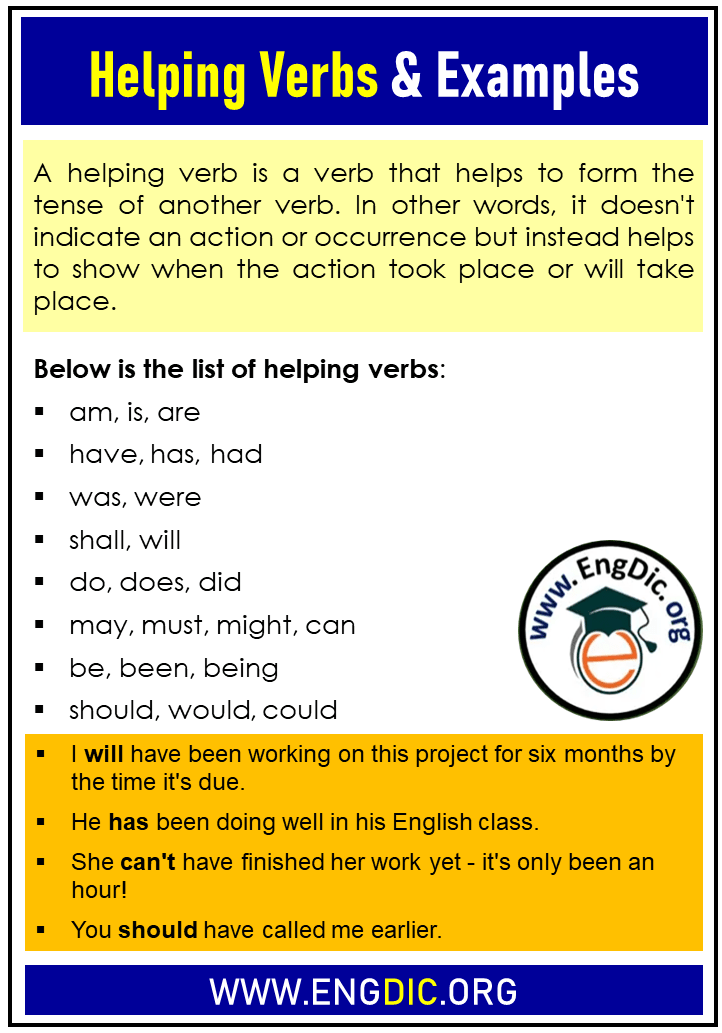
Helping Verbs List and Examples EngDic
Synonyms. assist, aid, help out, lend a hand to, lend a helping hand to, give assistance to, come to the aid of, succour, aid and abet, be unable to stop, be unable to prevent oneself from, be unable to refrain from, be unable to keep from, be unable to forbear from, be unable to break the habit of, assistance, aid, a helping hand, support, succour, advice, guidance, solution,
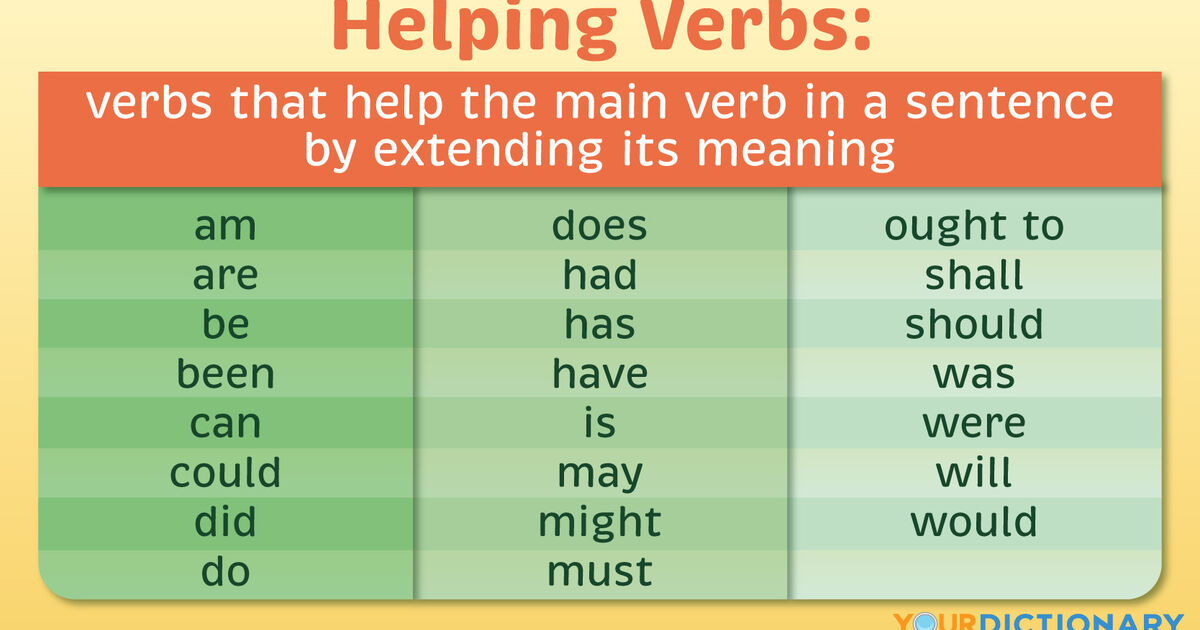
Helping Verbs Meaning and Types (With Examples) YourDictionary
The meaning of HELP is to give assistance or support to (someone) : to provide (someone) with something that is useful or necessary in achieving an end. How to use help in a sentence.. help 1 of 2 verb. ˈhelp . Southern often ˈhep, also ˈheəp. helped; helping; helps. Synonyms of help. transitive verb. 1

Helping Verb Promova Grammar
Help V1 V2 V3 V4 V5, Past Simple and Past Participle Form of Help Verb; Help Meaning; assistant, auxiliary, helper, aide, aid V1, V2, V3, V4, V5 Form of Help Base Form Past Form Past Participle help helped helped Base Form s/es/ies ing Form help helps helping Synonym for Help assistant auxiliary helper aide aid assistance support assist relief resort remedy cure solution Opposite of Help.
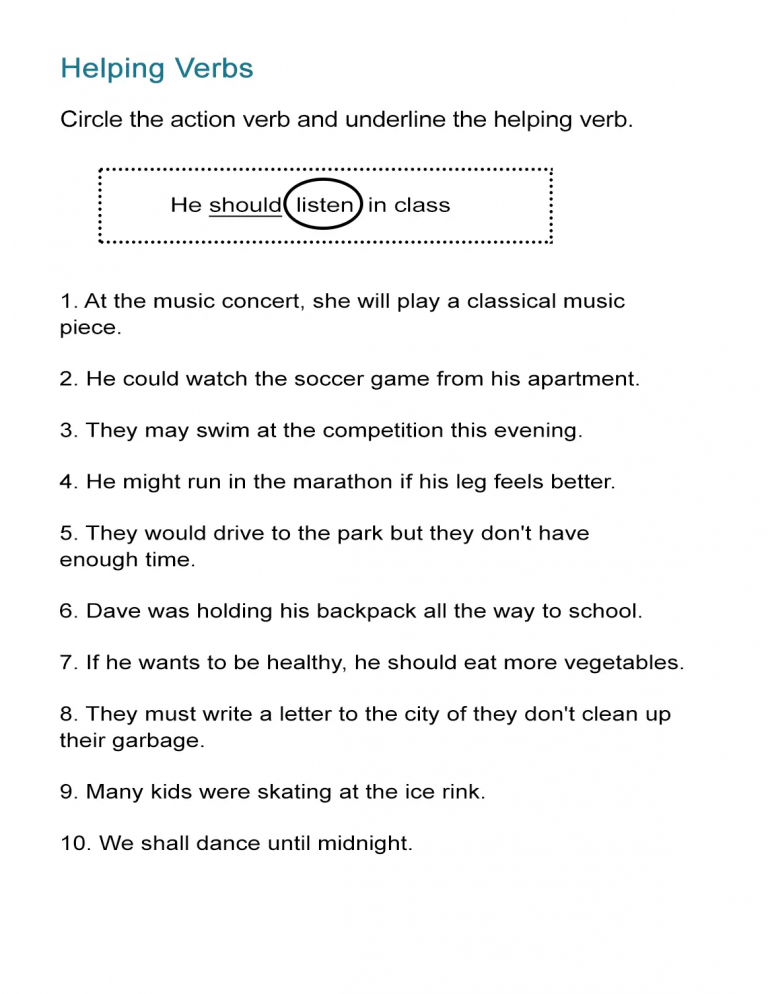
Helping Verbs Worksheet Identify the Action and Helping Verb ALL ESL
English verb conjugation to help to the masculine. Regular verb: help - helped - helped.

a poster with the words helping verbs in english
HELP definition: 1. to make it possible or easier for someone to do something, by doing part of the work yourself or…. Learn more.
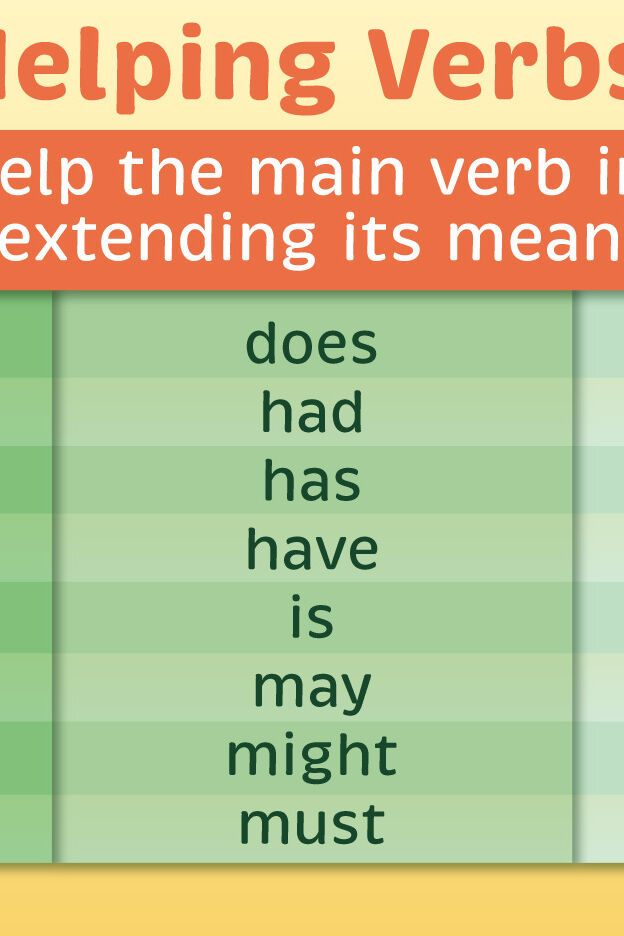
Helping Verbs Meaning and Types (With Examples) YourDictionary
Verbs; To Help Conjugation; To Help Infinitive: to help Gerund: helping Past participle: helped Simple past: helped Irregular forms Auxilliary verb Spelling change Use contractions. Positive Negative. Indicative. Positive Negative. Present. I help I help: you help you help: he/she/it helps he/she/it helps: we help we help:

Verb song Teaching verbs, Helping verbs, Helping verbs anchor chart
Past Participle (V3) of the Verb "Help": The past participle (V3) of the verb "help" is used to form the perfect tenses and passive voice. Here are some examples: I have helped my friend move to a new apartment. The project was helped by his colleague. Present Participle/Gerund (V4) of the Verb "Help": The present participle/gerund.

Helping Verbs in English English Study Here
Help Conjugation Indefinite / Simple Present Tense. I help the poor. We/You/They help the poor. He/She/It/Adam helps the poor. Present Continuous Tense. I am helping the poor. We/You/They are helping the poor. He/She/It/Adam is helping the poor. Present Perfect Tense. I have helped the poor. We/You/They have helped the poor. He/She/It/Adam has.
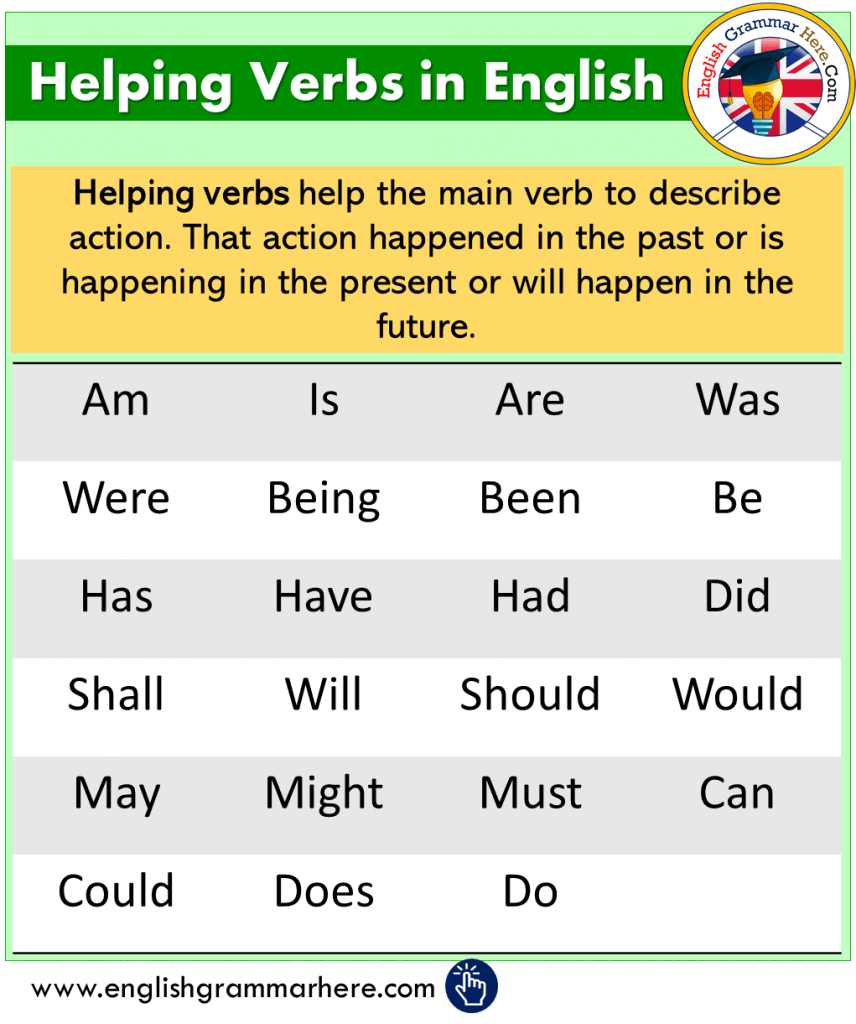
Helping Verbs, Meanings and Examples in English English Grammar Here
2 [intransitive, transitive] to improve a situation; to make it easier for something to happen It helped being able to talk about it. The money raised will help toward (= partly provide) the cost of organizing the championships. help something It doesn't really help matters knowing that everyone is talking about us. help (to) do something This should help (to) reduce the pain.
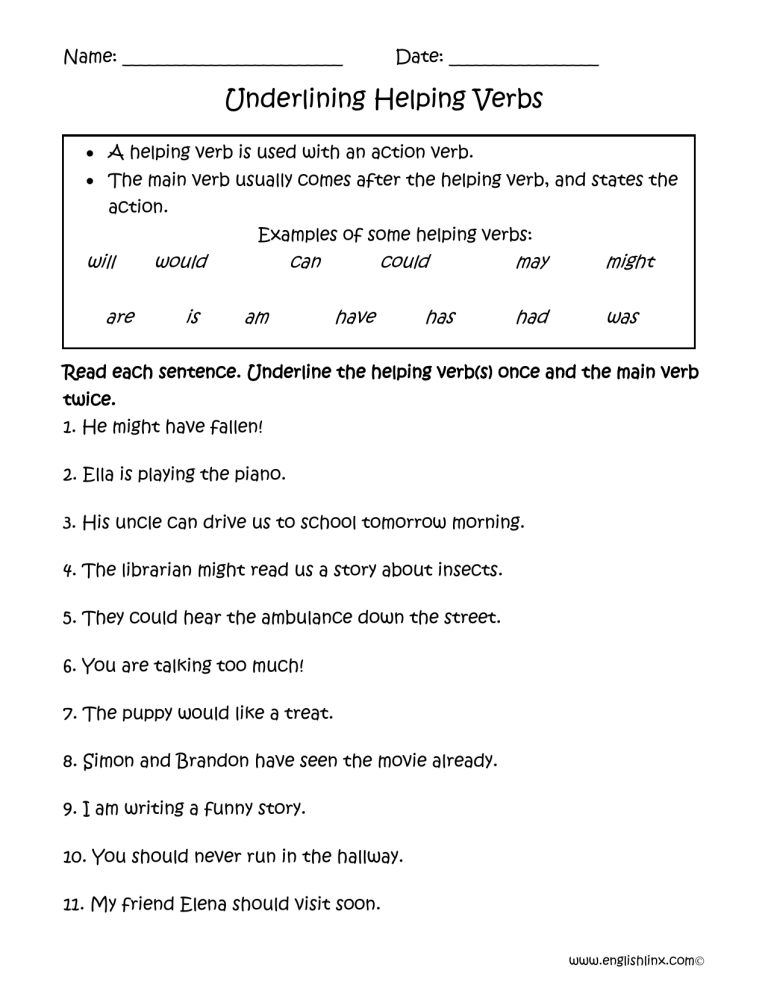
Writing Help Verbs, HOW TO USE ACTIVE VOICE WITH STRONG VERBS IN PLAIN
help with something He always helps with the housework. help somebody They are trying their best to do a good job and help others. help somebody with something Jo will help us with some of the organization. help in doing something Following these steps will help in protecting our environment. help somebody (to) do something Come and help me.
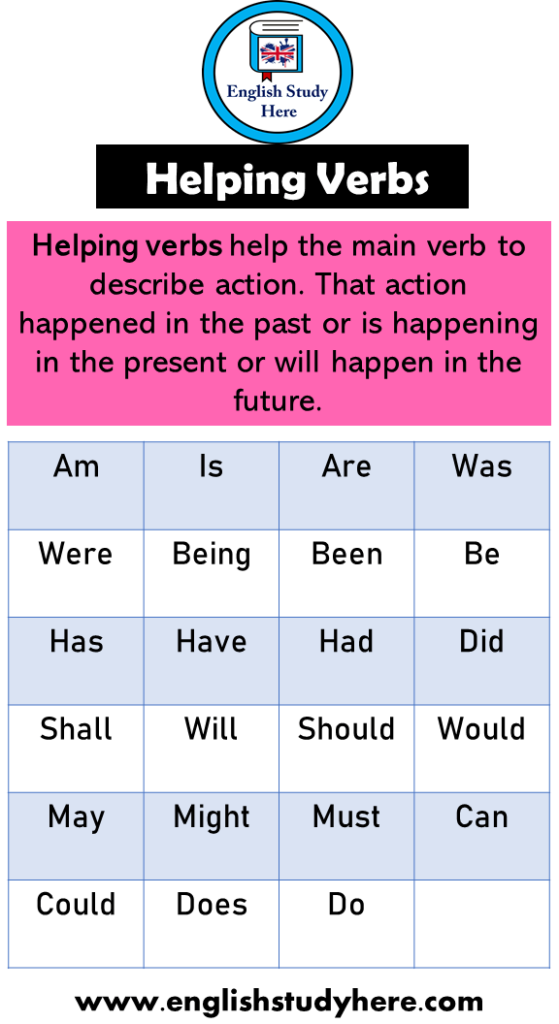
23 Helping Verbs and Definition English Study Here
present perfect; I: have been helping: you: have been helping: he, she, it: has been helping: we: have been helping: you: have been helping: they: have been helping
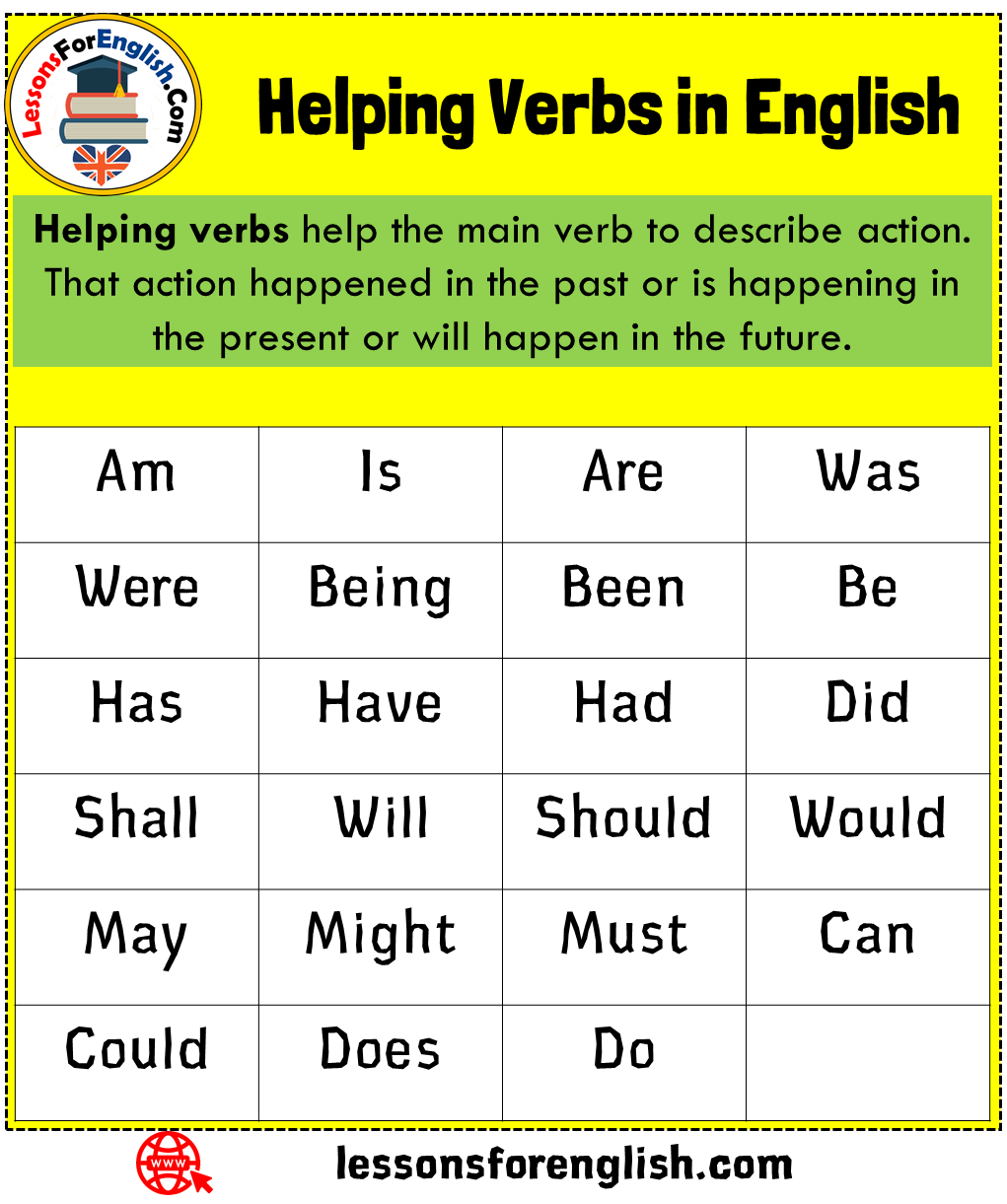
Helping verbs list with examples pdf mazseek
HELP definition: 1. to make it easier for someone to do something: 2. to make something easier or better: 3. to be…. Learn more.

Helping Verbs Explanation and Examples
In uses 1, 2, 3 and 4, this is a catenative verb that takes the to infinitive. It can also take the bare infinitive with no change in meaning. In use 5, can't help is a catenative verb that takes the gerund (-ing) or, with but, the bare infinitive. For more information, see Appendix:English catenative verbs; Conjugation
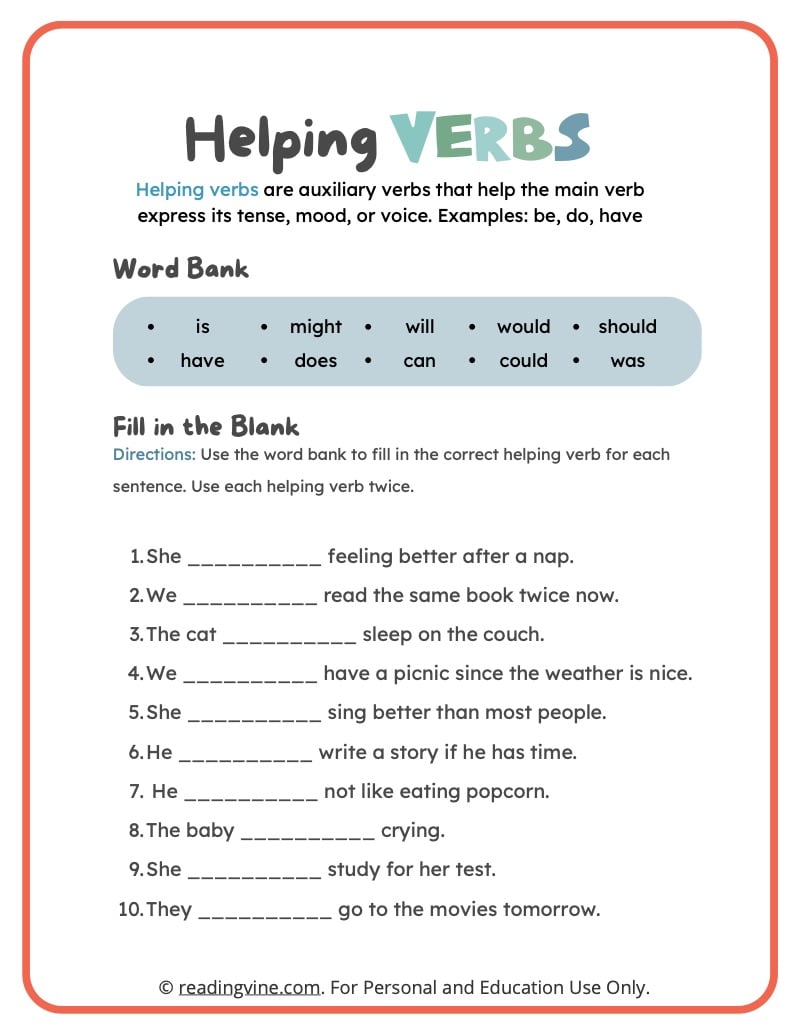
Helping Verbs Worksheets, Definition, Examples ReadingVine
A helping verb (also known as an auxiliary verb) is used with a main verb to help express the main verb's tense, mood, or voice. The main helping verbs are "to be," "to have," and "to do." They appear in the following forms: To Be: am, is, are, was, were, being, been, will be. To Have: has, have, had, having, will have.
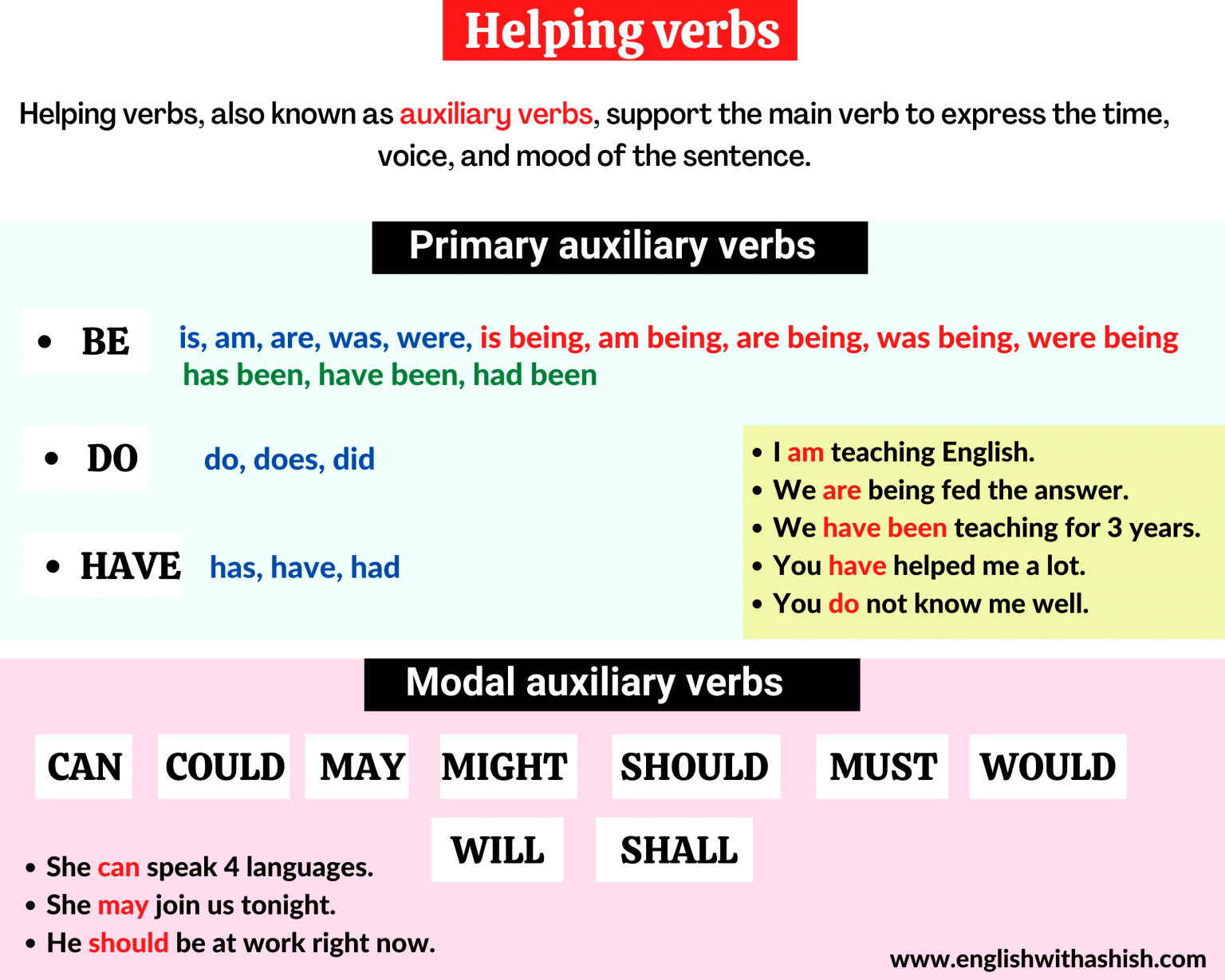
Helping verbs guide Primary and Modal Auxiliary verbs
Conjugate the English verb help: indicative, past tense, participle, present perfect, gerund, conjugation models and irregular verbs. Translate help in context, with examples of use and definition.
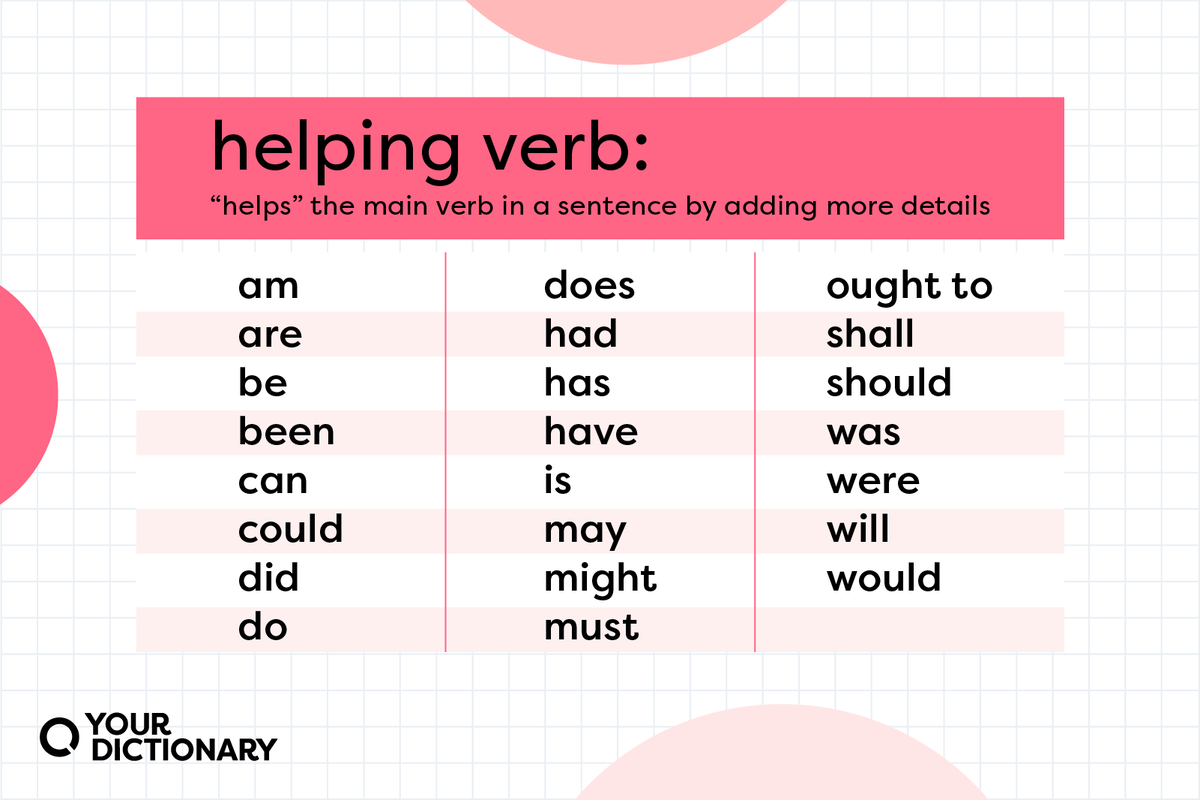
Helping Verbs Meaning, Types, and Examples YourDictionary
Help somebody (to) do - English Grammar Today - a reference to written and spoken English grammar and usage - Cambridge Dictionary